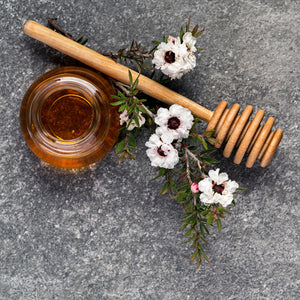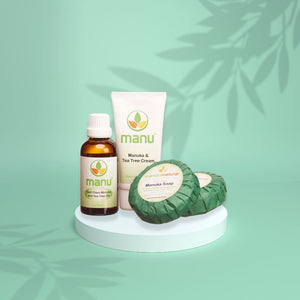A Modern Approach to Therapy
In an era defined by relentless schedules, constant connectivity, and unprecedented stress levels, the search for natural remedies has gained significant traction. Among these, medicinal plants stand out as a cornerstone of herbal medicine, offering a natural, holistic approach to managing stress. These plants, used for centuries across various cultures, are now being revisited as a viable alternative or complement to modern pharmacology. This article delves into the key medicinal plants with anti-stress effects and explores their role in contemporary therapy.

The Resurgence of Herbal Medicine
Herbal medicine and phytotherapy, are the practice of using plants and plant extracts for medicinal purposes. While modern medicine has made remarkable advances, there is a growing interest in herbal remedies due to their perceived safety, fewer side effects, and holistic benefits. The resurgence of herbal medicine can also be attributed to an increasing awareness of the limitations of synthetic drugs in treating chronic stress and anxiety. Medicinal plants offer a natural alternative that aligns with the body's innate healing processes.

Key Medicinal Plants with Anti-Stress Effects
Ashwagandha (Withania somnifera):

Ashwagandha, also known as Indian ginseng, is a powerful adaptogen, meaning it helps the body adapt to stress. It has been used in Ayurvedic medicine for over 3,000 years to relieve stress, increase energy levels, and improve concentration. Studies have shown that ashwagandha can lower cortisol levels, the hormone responsible for stress, thereby reducing anxiety and promoting a sense of calm. Its role in modern therapy is particularly significant as it offers a natural way to manage chronic stress and its associated health impacts.
Valerian (Valeriana officinalis):

Valerian root is another ancient remedy, primarily used for its sedative properties. It works by increasing levels of gamma-aminobutyric acid (GABA) in the brain, which helps calm the nervous system. Valerian is often recommended for people suffering from anxiety, insomnia, and nervous restlessness. Unlike some synthetic sedatives, valerian does not cause dependence or severe side effects, making it a popular choice in modern herbal therapy for stress relief.
Lavender (Lavandula angustifolia):

Lavender is well-known for its soothing fragrance, which is often used in aromatherapy to reduce stress and promote relaxation. The plant contains compounds such as linalool and linalyl acetate, which have calming effects on the nervous system. Lavender can be used in various forms, including essential oils, teas, and supplements. Its versatility and pleasant aroma make it a staple in both traditional and modern anti-stress therapies.
Chamomile (Matricaria chamomilla):

Chamomile is one of the most widely used medicinal plants for stress relief. Often consumed as a tea, chamomile has mild sedative properties that can help reduce anxiety and promote sleep. Its effectiveness is attributed to the presence of apigenin, an antioxidant that binds to specific receptors in the brain, helping to decrease anxiety. Chamomile’s gentle action makes it suitable for a wide range of people, including those with mild stress symptoms and children.
Passionflower (Passiflora incarnata):

Passionflower is another plant with notable anti-anxiety effects. It is believed to increase GABA levels in the brain, similar to valerian. Passionflower has been shown to be effective in reducing symptoms of anxiety and insomnia, often with fewer side effects than conventional medications. It is particularly beneficial for those looking for a natural remedy to manage stress without the sedative effects of stronger pharmaceuticals.
Lemon Balm (Melissa officinalis):

Lemon balm, a member of the mint family, has been used for centuries to reduce stress and anxiety, promote sleep, and improve cognitive function. Research suggests that lemon balm can improve mood and increase calmness, making it an excellent choice for those dealing with mild to moderate stress. It is often combined with other herbs like valerian and chamomile for a synergistic effect.
The Role of Medicinal Plants in Modern Therapy
In contemporary therapy, medicinal plants play a crucial role, particularly in integrative medicine, where they complement conventional treatments. Their role is not just limited to reducing stress but also in preventing stress-related disorders. Chronic stress is a risk factor for numerous health problems, including cardiovascular diseases, depression, and digestive issues. By incorporating medicinal plants into a wellness routine, individuals can manage stress more effectively, potentially reducing the risk of these long-term health issues.
Moreover, the holistic nature of herbal medicine addresses not only the symptoms of stress but also its root causes. For example, while synthetic drugs might target the physiological symptoms of anxiety, medicinal plants often work on multiple levels—physically, mentally, and emotionally—providing a more comprehensive approach to health.

Practical Applications and Considerations
For those interested in incorporating medicinal plants into their stress management regimen, it is essential to approach this practice mindfully. While these plants are natural, they are not without potential side effects or interactions with other medications. Consulting with a healthcare professional, particularly a practitioner of herbal medicine, can help tailor the use of these plants to individual needs and conditions.
It’s also important to source these plants from reputable suppliers to ensure quality and potency. The efficacy of herbal remedies depends significantly on how the plants are grown, harvested, and processed.

Conclusion
In a world where stress is nearly ubiquitous, medicinal plants offer a natural, effective, and holistic solution. These plants, with their rich history and proven benefits, are finding their place in modern therapy, providing a much-needed balance between the demands of contemporary life and the body's need for calm and restoration. As research continues to uncover the full potential of these natural remedies, their role in therapy is likely to expand, offering hope for a healthier, less stressful future.




发表评论